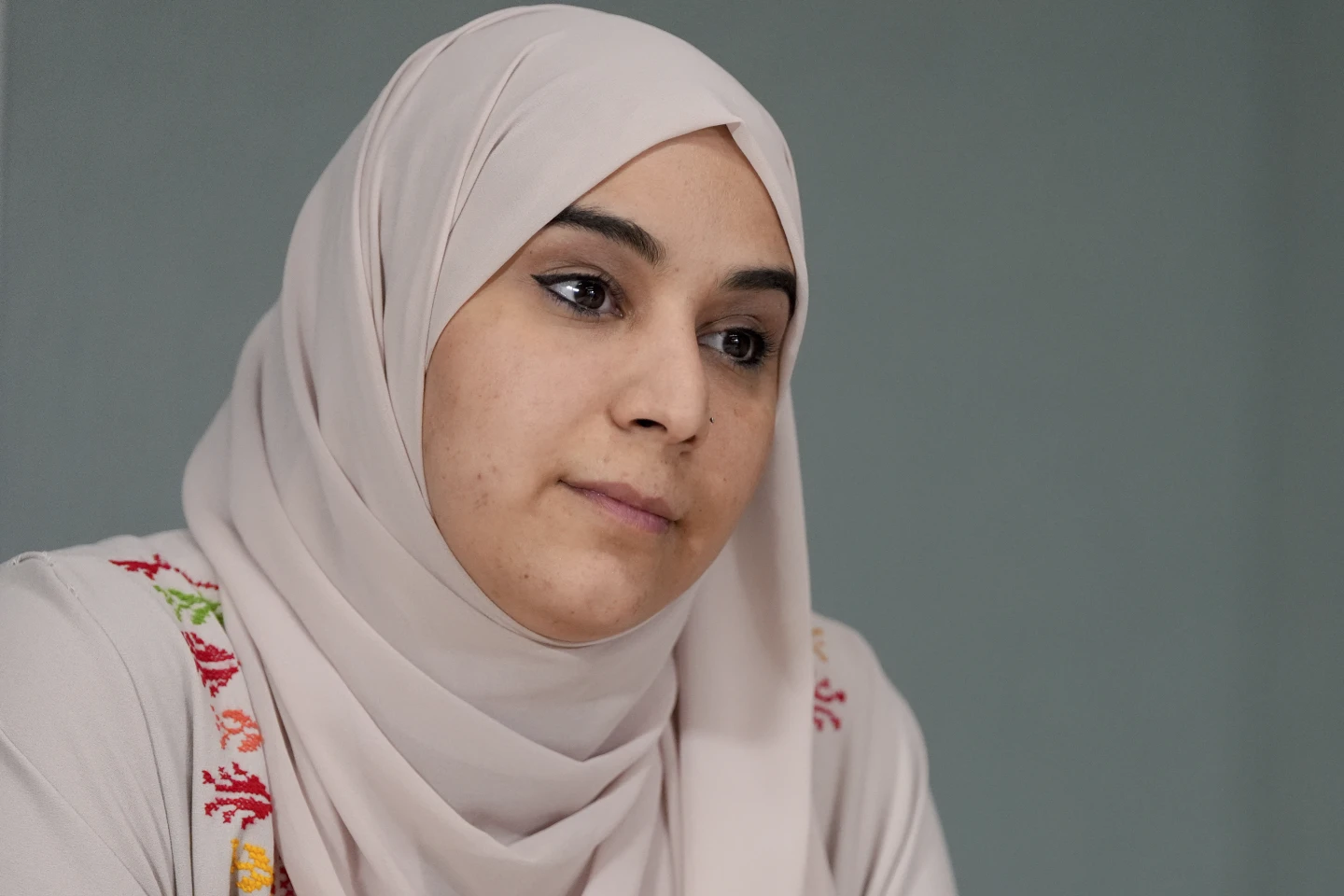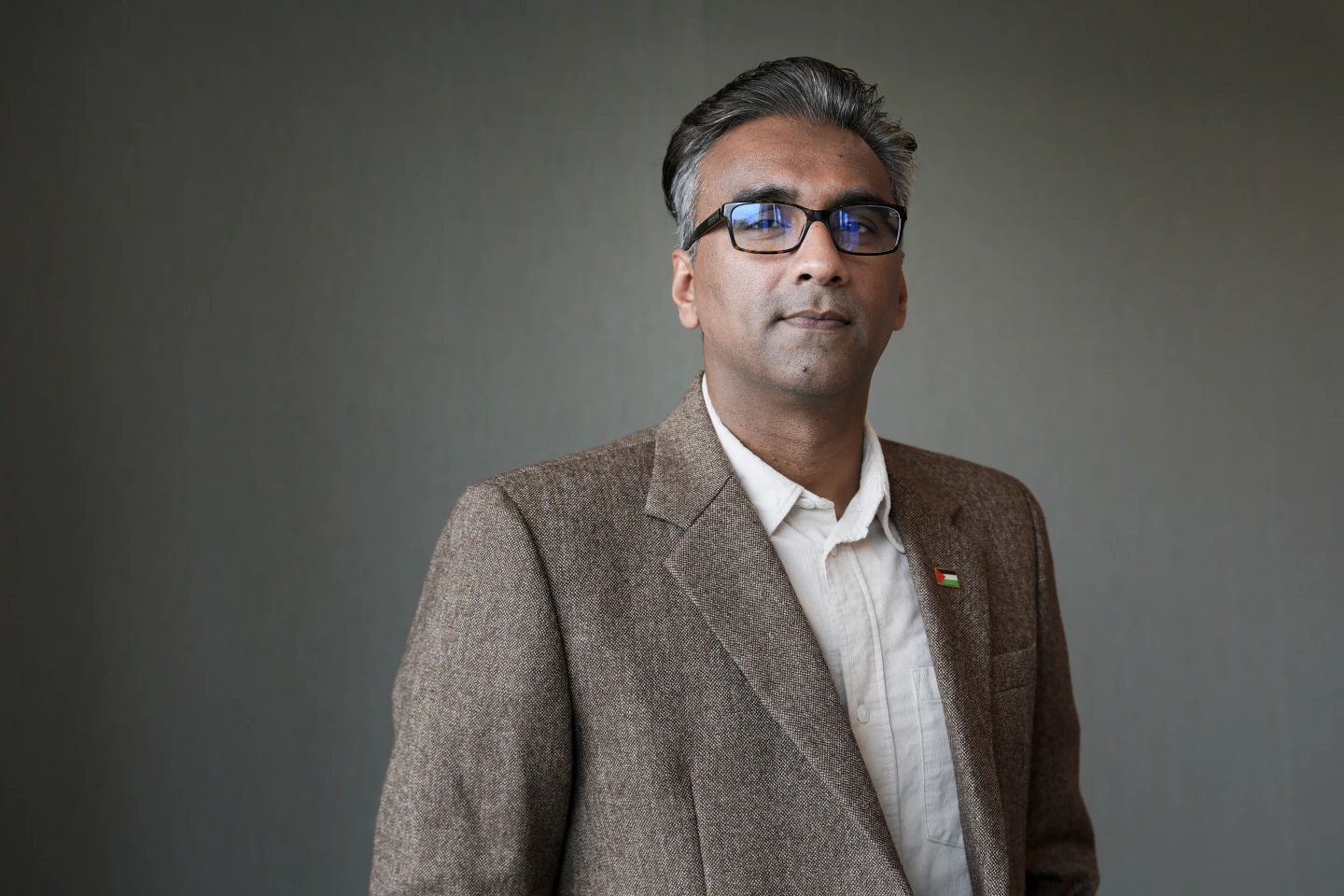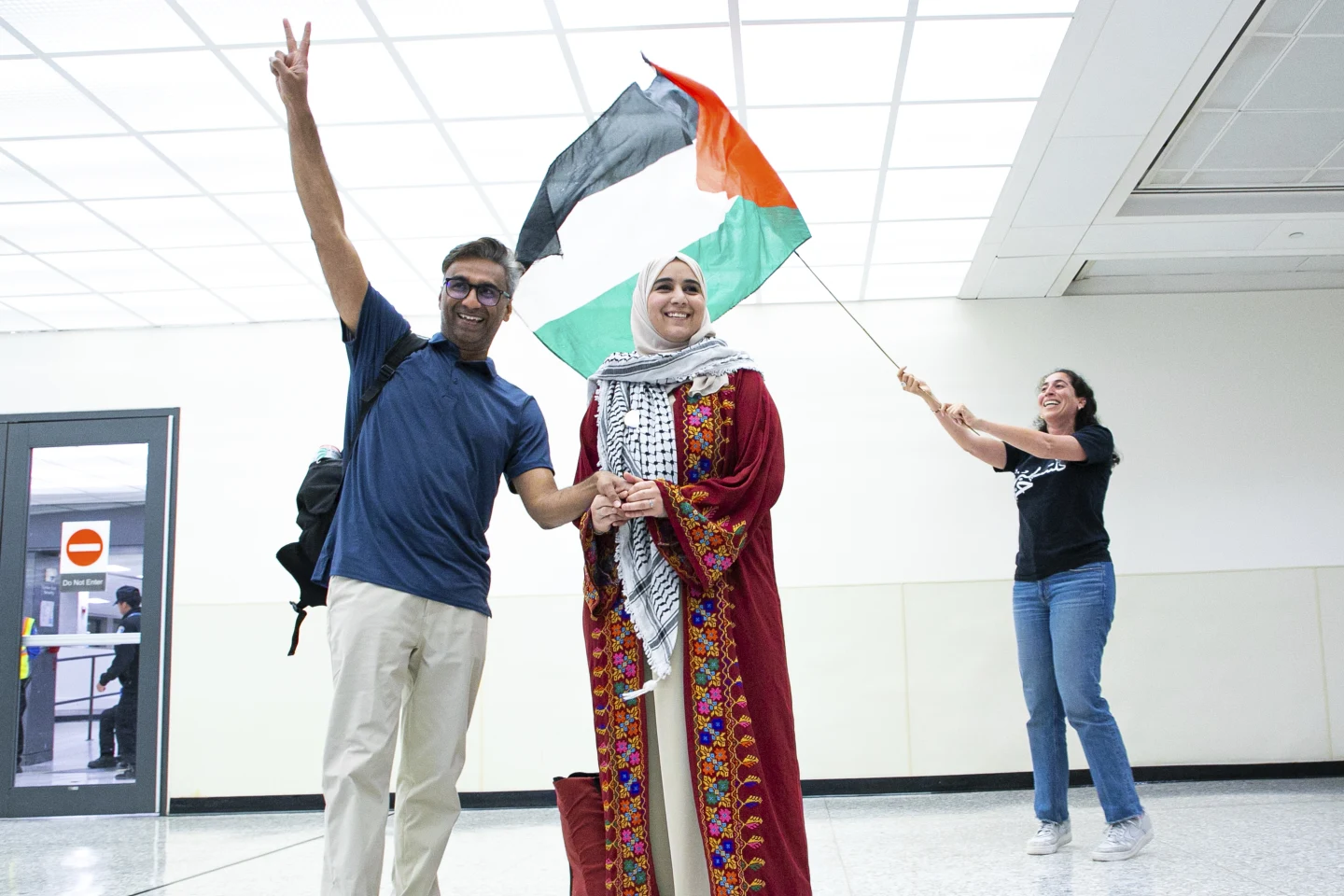One of the hardest times for Badar Khan Suri during his two months in federal custody was being packed onto a plane with hundreds of other prisoners in chains.
The Trump administration was trying to deport the Georgetown University scholar because of comments he made criticizing Israel’s war in Gaza. Guards didn’t tell the group where they were going, but the Indian national believed he was being sent out of the country.
Khan Suri needed to use the bathroom on the flight, but said guards wouldn’t unlock his wrists.
“They said, ‘No, you have to use it like this or do it in your trousers,’” Khan Suri said about the flight to a detention center in Louisiana. “They were behaving as if we were animals.”
Now 41, Khan Suri was released on bond last week while his lawsuit against the U.S. deportation case moves forward. In an interview with The Associated Press on Thursday, he described a crowded cell where he waited, unsure of what was coming next.
He also responded to the Trump administration’s claim that he promoted “Hamas propaganda.” Khan Suri said he only expressed support for Palestinians, who he believes are facing a “genocide broadcasted live.”
“I don’t support Hamas,” he said. “I support Palestine. I support Palestinians. And it is so deceiving for some people who just publish canards … They will just replace Palestine with Hamas.”
Because of his comments, he said U.S. officials treated him like a serious criminal. Other detainees told him his red uniform was worn by the most dangerous people.
“I said, ’No, I’m just a university teacher. I did nothing,” Khan Suri said.
Still, there were signs of support. More than a hundred people from the Georgetown community wrote letters to the federal judge on his behalf, including some who are Jewish.
A crowd welcomed him when he returned to the Washington, D.C., area.
“Hindus, Jews, Christians, Muslims — everyone together,” said Khan Suri, a postdoctoral fellow who researches religion, peace, and violence. “That is the reality I want to live with. That’s the reality I want to die for. Those people together.”
In a statement to the AP on Friday, Department of Homeland Security spokesperson Tricia McLaughlin denied Khan Suri’s claims about poor treatment and unfair legal process.
McLaughlin said Khan Suri spoke with lawyers “within hours of his arrival at the facility” and that he did not sleep on the floor. She added that Immigration and Customs Enforcement is committed to providing safe and humane conditions for those in custody.

‘I was not in Russia or North Korea’
U.S. immigration officers have detained international students from across the country, including many involved in campus protests over the Israel-Hamas conflict, since Trump’s second term began.
Officials said they canceled Khan Suri’s visa because he spread “Hamas propaganda and promoted antisemitism on social media.” They also mentioned his link to “a senior advisor to Hamas,” referring to his wife Mapheze Saleh’s father, court documents say.
Saleh is a Palestinian American, and her father worked with the Hamas-led government in Gaza during the early 2000s, though this was before the October 7, 2023 Hamas attack on Israel, according to Khan Suri’s lawyers.
His lawyers said he had little connection with his father-in-law, Ahmed Yousef. During the interview, Khan Suri didn’t comment about Yousef and instead focused on his arrest and time in custody.
Khan Suri said he was arrested right after teaching a class about minority rights. Masked officers in plain clothes pulled up in an unmarked car outside his home in suburban Washington.
They didn’t show him any paperwork. Apart from saying his visa was being revoked, they didn’t explain why he was being arrested, which he described as a “kidnapping.”
“This is not some authoritarian regime,” Khan Suri said. “I was not in Russia or North Korea. I was in the best place in the world. So, I was shocked.”
‘How can this be happening?’
As he was taken away, Khan Suri realized the goal was to deport him.
He described being subjected to degrading procedures: fingerprinting, a DNA swab, and chains on his wrists, waist, and ankles. Officers told him he could speak with his wife at a Virginia detention center, but that never happened, he said.
He said he had to sleep on the floor without a blanket and use a toilet that was under camera surveillance. The next day, he and other detainees were put in a van and later boarded a plane.
“I asked them where I am going now? Nobody would reply anything,” Khan Suri said. “They just pushed us in.”
Conditions were no better at the federal detention center in Louisiana. The bathroom had no privacy barrier and was watched by a camera.
He was finally able to call his wife, but said she couldn’t hear him. He became very worried, thinking someone was stopping his family from responding.
He wasn’t allowed to speak to a lawyer, and fellow detainees told him most people are deported within three days.
“I was crying from inside, ‘How can this be happening?’” he said. “A few hours back, I was in Georgetown teaching my students, talking about peace and conflict analysis.”

Through the abyss
Khan Suri said his first week or more in custody was filled with fear and confusion.
“Same terror. Same fear. Same uncertainty. Same mockery of rule of law. Same mockery of due process.”
“I was going more and more deeper, reaching to my abyss,” he said. “And I was discovering that the abyss also has more and more depth.”
He kept praying five times a day, even though he didn’t know which way Mecca was.
“I was very strong like that, that God will help me. American Constitution will help me. American people will help me,” he said.
Later, Khan Suri was moved to a detention center in Texas. For the first two weeks, he said he slept on the floor of a packed cell. Then he got a cot.
Eventually, he was allowed to speak with his attorneys. That, he said, led to a shift in how he was treated. As a Muslim, he was given a Quran and later a prayer rug. He treated the rug like it was his young son.
“My eyes would become wet, and I would give that blanket a hug as my son so that this hug should reach him,” Khan Suri said. “And when I came back, he told me the same, that he was hugging a pillow.”


